
As a publisher of experimental and genre-bending works, Nightboat is indebted to Black literary and linguistic innovation. Black authors have often been at the forefront of movements that have allowed for greater freedom in language and writing. In our relatively short history, we have published some of these groundbreaking works. We intend to continue seeking out these voices and using our resources to support Black writers and their work.
On Juneteenth of this year, we shared a post exploring the connection between that date and Black poetics, selecting excerpts from the works of our Black authors and accompanying them with thoughtful statements from our summer interns.
Now, we offer a second entry that continues and expands such an engagement.
•
Excerpt from Field Theories by Samiya Bashir
| In “Blackbody Radiation” by Samiya Bashir, the concepts of line spacing, punctuation, and genre are disturbed. Is the work a poem or an equation? Is an equation inherently a poem, and/or vice versa? Disorder is created in the most orderly way. Here, Bashir disrupts the normative whiteness of these scientific theories, and describes the black experience with resolute motion. It is this ability of Bashir’s, to construct literary machines that both transcend structure and unsettle normativity, that pervades through Field Theories to create a luminously jarring collection. |
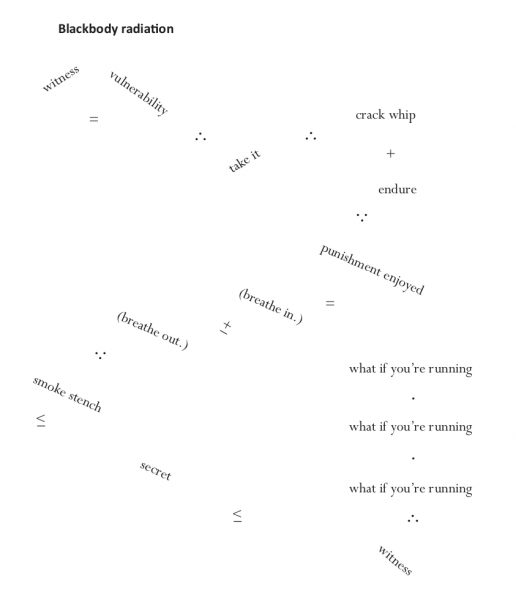
•
Excerpt from Jump the Clock by Erica Hunt
| Erica Hunt is concerned with commitment. Commitment to look out, to listen, to notice, to love, and to live. A commitment to vulnerability. Her poetry articulates a deep commitment to life, and a need for a community that will protect the living simply because we are alive. This kind of commitment disrupts certainty and exactitude. It is a queer commitment in the sense that it refuses regularization and precise categorization. Her commitment is to the violated and voided. Living regardless. It seems to me that what Hunt is most interested in is life—still and distilled. Her poems demand. They instruct and construct. And they do so without claiming to have all the answers or to know exactly how it will all turn out. Hunt is committed to the deep stories of people, things, and their relations. Telling and hearing these stories means knowing that there is no such thing as solid ground. |
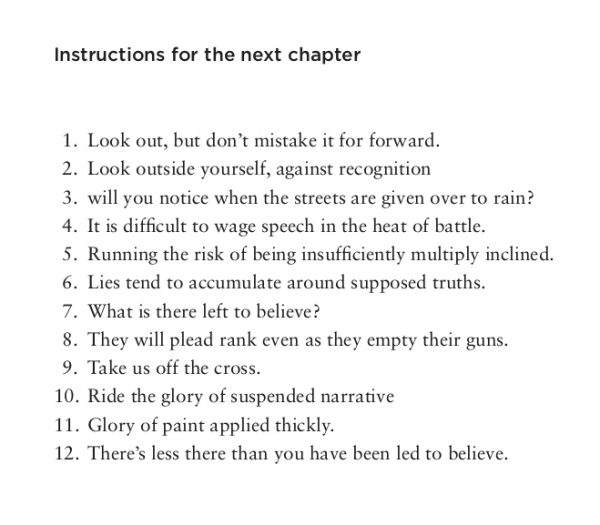
•
Excerpt from No Dictionary of a Living Tongue by Duriel E. Harris
| Light boxes and tunnels carve out endless rooms and gardens in Duriel E. Harris’s No Dictionary Of a Living Tongue. Memory and place bend forward and backward, arching through a woman doing laundry, sheets of music, and portals as suggested by the inclusion of a Haruki Murakami quote. “More tunnel than room, in her childhood mind the cellar was a giant snake, a long black constrictor prone to swallowing and squeezing unruly children to stillness.” Harris writes potently. The corridors are often indistinguishable from self. Harris’ beautiful images of black birds becoming “like a flurry of ash” experiment with form and reverie in surprising and cavernous ways creating a powerful collection of poems that asks: “How many until none becomes some?” |
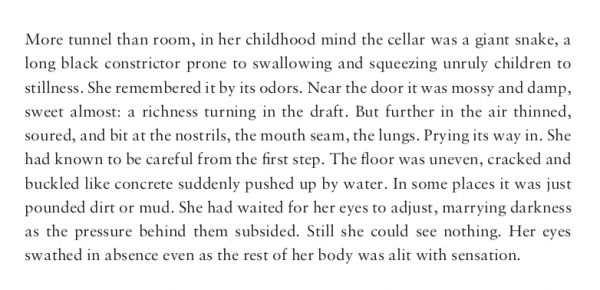
•
Excerpt from Crosslight for Youngbird by Asiya Wadud
| Here, the body becomes a body of water itself—borderless, buoyant, and tranquil. Wadud rewrites a body of pain, one that has burned and is burning under the sun, as one of momentary bliss. This poem is a small pocket of peace. Amidst violence, the body drifts away from nations of historical and current torment, to become its own small nation. |
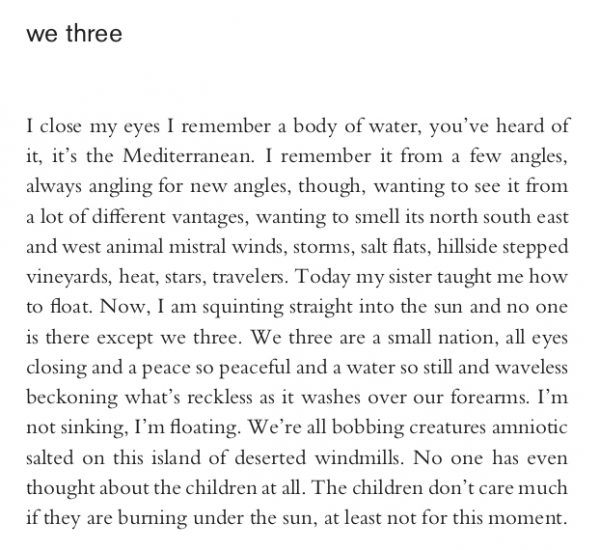
•
Excerpt from SLINGSHOT by Cyrée Jarelle Johnson
| “False sonnet embroidered w/ four loko empties” is a slingshot in itself, a concentrated invention containing not only resistance, but also active refusal. In SLINGSHOT, Cyrée Jarelle Johnson’s poems travel this way— with a certain energetic unforgivingness. They move with restlessness; they demand to take up space. With this brazenness, Johnson writes “I unfold my form against her fluster… I will devour any attempt to subdue me”. SLINGSHOT, then, embodies this unapologetic unfolding— against the many corporeal, sexual, racial, and gendered malevolences within our institutions. |
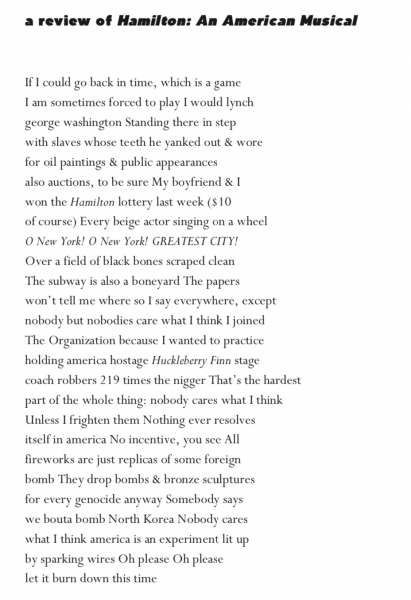
•
Excerpt from Life in a Box is a Pretty Life by Dawn Lundy Martin
| Start with flowers. Notice where and how they bloom. Allow yourself to feel it. “We all have the same type of feeling.” There are so many different ways of expressing a feeling. So many roots. Start with the soil. “Theres some drifting… To fight is to lie down among the dead. [Unstable space.] [Claims historical.]” Dawn Lundy Martin offers us so many ways—of feeling, drifting, planting, living.
We are not limited. Though we do have needs. There are certain things that we insist on. “History is littered with severed cocks. A want to be buried there—those ruins.” And other things that we refuse. She says that there is space. Beneath “no god, no oracle, no air,” there is room to grow. And imagine. And dream. There is room in the bag to breathe. “Gapes to fall into.” She proves the theorem. Thinking outside of the box is overrated. There is much to see here. “Things seen from the corner of the eye occasionally indicates a wider haunting.” Lundy Martin keeps us honest. And curious. She says that “Almost everything we’ve ever desired is diminished when enclosed.” There is no need to despair. We remember our small comforts. We make meaning and magic from “arrangements and things.” We will remember life. We will plant seeds. We will nurture—beauty. And it is enough. It is a pretty life. |
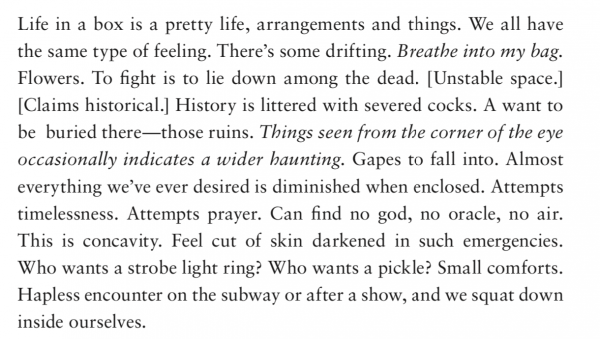
—the Nightboat Summer Interns: Mars Hu, Grace Joshua Byron & Isaiah Hines
